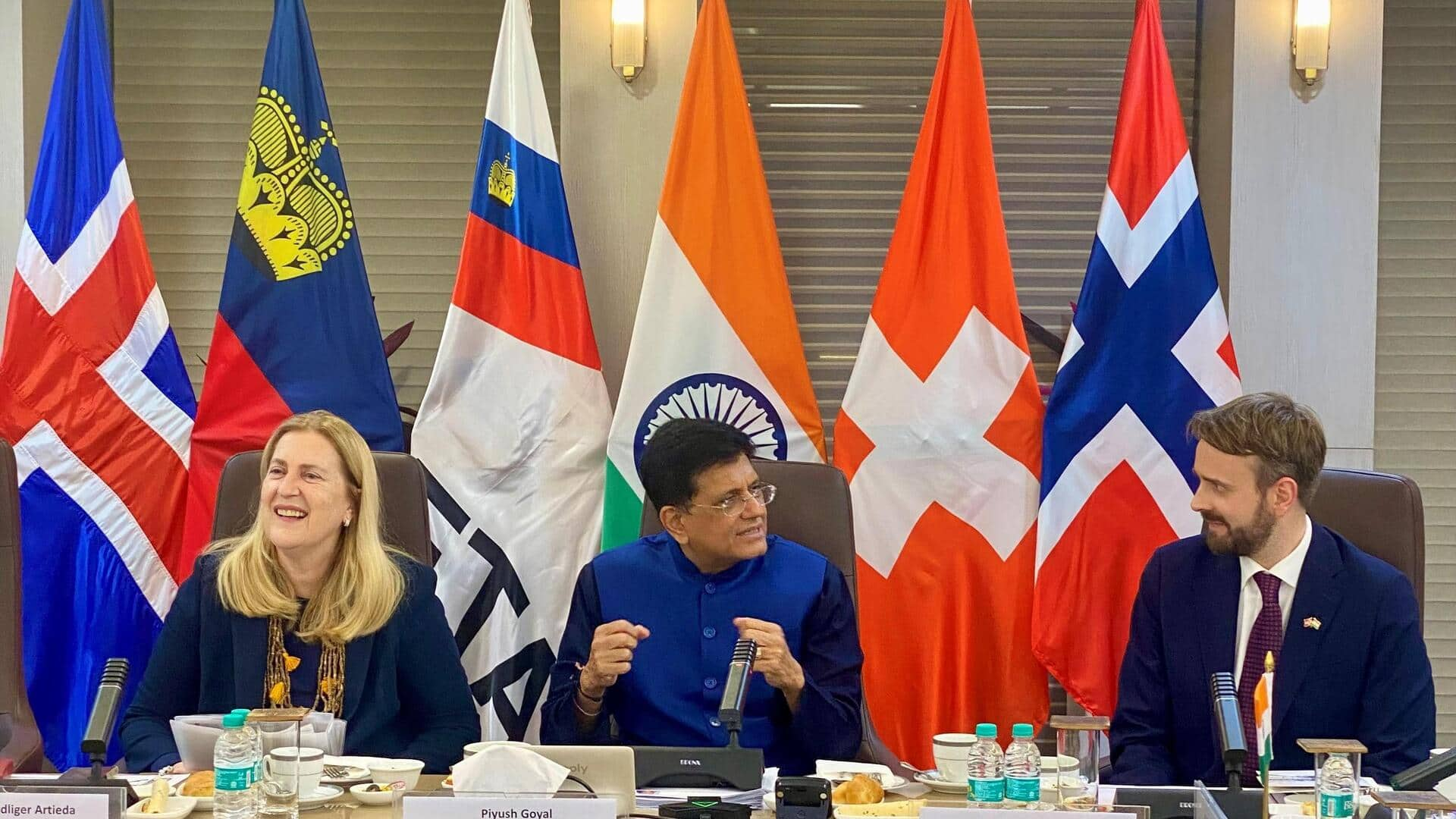
India-EFTA trade pact takes effect: What it means for consumers
What's the story
India's trade agreement with the European Free Trade Association (EFTA) has come into effect today. The deal, officially called the Trade and Economic Partnership Agreement (TEPA), was signed on March 10, 2024. It isn't just about cheaper Swiss chocolates or watches, but also includes a $100 billion investment commitment over 15 years, an unprecedented feature in any Indian trade pact so far.
Member nations
Who are EFTA nations and what is TEPA?
EFTA is a four-nation bloc comprising Switzerland, Norway, Iceland, and Liechtenstein. The TEPA will gradually reduce customs duties on a range of products over the next decade. This includes Swiss watches, chocolates, biscuits, clocks, as well as wines and apparel. Tariffs will also be cut on industrial goods such as machinery from Switzerland and medical devices from Norway.
Export opportunities
India will benefit from TEPA too
The TEPA also opens up new avenues for Indian exporters in labor-intensive sectors such as textiles, marine products, leather goods, toys, and gems and jewelry. Agricultural exports like tea, coffee, and fruits will also benefit from this deal. High-tech exports, including medical electronics, diagnostic devices, smart sensors, and EV components, could find a market in Europe's high-income economies.
Investment pledge
Investment commitment under TEPA
The TEPA also includes a $100 billion investment commitment, $50 billion in the first 10 years, and another $50 billion after that. This is expected to generate one million direct jobs in India. Notably, if these investments are not made, India can suspend tariff concessions under this deal, a unique feature for an Indian Free Trade Agreement (FTA).
Sectoral alignment
Each EFTA nation brings unique strengths to the table
Each EFTA nation brings unique strengths to the table. Switzerland is known for pharma and medical devices, while Liechtenstein specializes in industrial automation. Norway contributes green maritime technology and offshore wind energy, whereas Iceland has expertise in renewable power and geothermal energy. This aligns with India's manufacturing ambitions, energy transition plans, and services growth strategy.
Trade balance
Trade with EFTA nations and India's FTAs
In 2024-25, India's exports to EFTA were $1.97 billion while imports stood at $22.44 billion, resulting in a trade deficit of $20.47 billion. Switzerland accounts for most of this trade, mainly gold imports. Commerce Minister Piyush Goyal confirmed that TEPA comes into effect on October 1. This is the fifth trade pact signed by the Modi government after those with Mauritius, the UAE, the UK, and Australia.